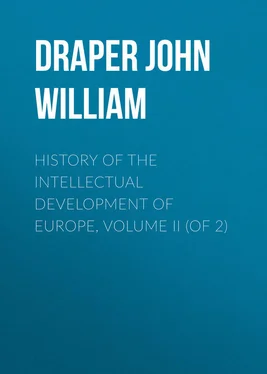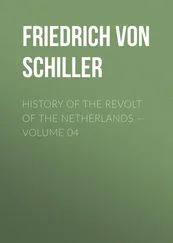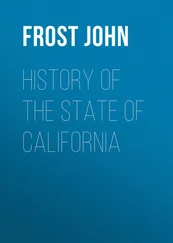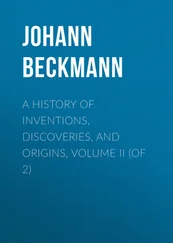John Draper - History of the Intellectual Development of Europe, Volume II (of 2)
Здесь есть возможность читать онлайн «John Draper - History of the Intellectual Development of Europe, Volume II (of 2)» — ознакомительный отрывок электронной книги совершенно бесплатно, а после прочтения отрывка купить полную версию. В некоторых случаях можно слушать аудио, скачать через торрент в формате fb2 и присутствует краткое содержание. Жанр: foreign_antique, foreign_prose, на английском языке. Описание произведения, (предисловие) а так же отзывы посетителей доступны на портале библиотеки ЛибКат.
- Название:History of the Intellectual Development of Europe, Volume II (of 2)
- Автор:
- Жанр:
- Год:неизвестен
- ISBN:нет данных
- Рейтинг книги:4 / 5. Голосов: 1
-
Избранное:Добавить в избранное
- Отзывы:
-
Ваша оценка:
- 80
- 1
- 2
- 3
- 4
- 5
History of the Intellectual Development of Europe, Volume II (of 2): краткое содержание, описание и аннотация
Предлагаем к чтению аннотацию, описание, краткое содержание или предисловие (зависит от того, что написал сам автор книги «History of the Intellectual Development of Europe, Volume II (of 2)»). Если вы не нашли необходимую информацию о книге — напишите в комментариях, мы постараемся отыскать её.
History of the Intellectual Development of Europe, Volume II (of 2) — читать онлайн ознакомительный отрывок
Ниже представлен текст книги, разбитый по страницам. Система сохранения места последней прочитанной страницы, позволяет с удобством читать онлайн бесплатно книгу «History of the Intellectual Development of Europe, Volume II (of 2)», без необходимости каждый раз заново искать на чём Вы остановились. Поставьте закладку, и сможете в любой момент перейти на страницу, на которой закончили чтение.
Интервал:
Закладка:
The development of scholastic philosophy, which dates from the time of Erigena, was accelerated by two distinct causes: the dreadful materialization into which, in Europe, all sacred things had fallen, and the illustrious example of the Mohammedans, who already, by their physical inquiries, had commenced a career destined to end in brilliant results. The Arabs in Spain promote these discussions.The Spanish universities were filled with ecclesiastics from many parts of Europe. Peter the Venerable, the friend and protector of Abelard, who had spent much time in Cordova, and not only spoke Arabic fluently, but actually translated the Koran into Latin, mentions that, on his first arrival in Spain, he found several learned men, even from England, studying astronomy. The reconciliation of many of the dogmas of authority with common sense was impossible for men of understanding. Could the clear intellect of such a statesman as Hildebrand be for a moment disgraced by accepting the received view of a doctrine like that of transubstantiation? His great difficulty was to reconcile what had been rendered orthodox by the authority of the Church with the suggestions of reason, or even with that reverence for holy things which is in the heart of every intelligent man. In such sentiments, we find an explanation of the lenient dealings of that stern ecclesiastic with the heretic Berengar. He saw that it was utterly impossible to offer any defence of many of the materialized dogmas of the age, but then those dogmas had been put forth as absolute truth by the Church. Rise of Scholastic Theology.Things had come to the point at which reason and theology must diverge; yet the Italian statesmen did not accept this issue without an additional attempt, and, under their permission, Scholastic Theology, which originated in the scholastic philosophy of Erigena and his followers, sought, in the strange union of the Holy Scriptures, the Aristotelian Philosophy, and Pantheism, to construct a scientific basis for Christianity. Heresy was to be combated with the weapons of the heretics, and a co-ordination of authority and reason effected. Under such auspices scholastic philosophy pervaded the schools, giving to some of them, as the University of Paris, a fictitious reputation, and leading to the foundation of others in other cities. It answered the object of its politic promoters in a double way, for it raised around the orthodox theology an immense and impenetrable bulwark of what seemed to be profound learning, and also diverted the awakening mind of Western Europe to occupations which, if profitless, were yet exciting, and without danger to the existing state of things. In that manner was put off for a time the inevitable day in which philosophy and theology were to be brought into mortal conflict with each other. Its advantages in the existing state of the Church.It was doubtless seen by Hildebrand and his followers that, though Berengar had set the example of protesting against the principle that the decision of a majority of voters in a council or other collective body should ever be received as ascertaining absolute truth, yet so great was the uncertainty of the principles on which the scholastic philosophy was founded, so undetermined its mental exercise, so ineffectual the results to which it could attain, that it was unlikely for a long time to disturb the unity of doctrine in the Church. While men were reasoning round and round again in the same vicious circle without finding any escape, and indeed without seeking any, delighted with the dexterity of their movements, but never considering whether they were making any real advance, it was unnecessary to anticipate inconvenience from their progress.
The philosophical dilemma of the Church.Here was the difficulty. The decisions of the Church were asserted to be infallible and irrevocable; her philosophy, if such it can be called – as must be the case with any philosophy reposing upon a final revelation from God – was stationary. But the awakening mind of the West was displaying, in an unmistakable way, its propensity to advance. As one who rides an unruly horse will sometimes divert him from a career which could not be checked by main force by reining him round and round, and thereby exhausting his spirit and strength, and keeping him in a narrow space, so the wanton efforts of the mind may be guided, if they cannot be checked. These principles of policy answered their object for a time, until metaphysical were changed for physical discussions. Then it became impossible to divert the onward movement, and on the first great question arising – that of the figure and place of the earth – a question dangerous to the last degree, since it inferentially included the determination of the position of man in the universe, theology suffered an irretrievable defeat. Between her and philosophy there was thenceforth no other issue than a mortal duel.
Course of Scholasticism.Though Erigena is the true founder of Scholasticism, Roscelin, already mentioned as renewing the question of Platonic Universals, has been considered by some to be entitled to that distinction. After him, William of Champeaux opened a school of logic in Paris, A.D. 1109, and from that time the University made it a prominent study. On the rise of the mendicant orders, Scholasticism received a great impulse, perhaps, as has been affirmed, because its disputations suited their illiterate state; Thomas Aquinas, the Dominican, and Duns Scotus, the Franciscan, founding rival schools, which wrangled for three centuries. In Italy, Scholasticism never prevailed as it did in France and elsewhere, and at last it died away, its uselessness, save in the political result before mentioned, having been detected.
Reaction in the papacy against these pressures.The middle of the eleventh century ushers in an epoch for the papacy and for Europe. It is marked by an attempt at a moral reformation in the Church – by a struggle for securing for the papacy independence both of the Emperors of Germany and of the neighbouring Italian nobles – thus far the pope being the mere officer of the emperor, and often the creature of the surrounding nobility – by the conversion of the temporalities of the Church, heretofore indirect, into absolute possessions, by securing territories given "to the Church, the blessed Peter, and the Roman republic" to the first of these beneficiaries, excluding the last. Preparation for a concentration of the papal power.As events proceeded, these minor affairs converged, and out of their union arose the great conflict of the imperial and papal powers for supremacy. The same policy which had succeeded in depriving the Roman people of any voice in appointments of popes – which had secularized the Church in Italy, for a while seized all the material resources of Europe through the device of the Crusades, and nearly established a papal autocracy in all Europe. These political events demand from us notice, since from them arose intellectual consequences of the utmost importance.
The second Lateran Council, under Nicolas II., accomplished the result of vesting the elective power for the papacy in the cardinals. That was a great revolution. It was this council which gave to Berengar his choice between death and recantation. Three parties in Italy.There were at this period three powers engaged in Italy – the Imperial, the Church party, and the Italian nobles. For the sake of holding the last in check – since it was the nearest, it required the most unremitting attention – Hildebrand had advised the popes who were his immediate predecessors to use the Normans, who were settled in the south of the peninsula, by whom the lands of the nobles were devastated. Thus the difficulties of their position led the popes to a repetition of their ancient policy; and as they had, in old times, sought the protection of the Frankish kings, so now they sought that of the Normans. Hildebrand becomes pope.But in the midst of the dissensions and tumults of the times, a great man was emerging – Hildebrand, who, with almost superhuman self-denial, again and again abstained from making himself pope. On the death of Alexander II. his opportunity came, and, with acceptable force, he was raised to that dignity, A.D. 1073.
Читать дальшеИнтервал:
Закладка:
Похожие книги на «History of the Intellectual Development of Europe, Volume II (of 2)»
Представляем Вашему вниманию похожие книги на «History of the Intellectual Development of Europe, Volume II (of 2)» списком для выбора. Мы отобрали схожую по названию и смыслу литературу в надежде предоставить читателям больше вариантов отыскать новые, интересные, ещё непрочитанные произведения.
Обсуждение, отзывы о книге «History of the Intellectual Development of Europe, Volume II (of 2)» и просто собственные мнения читателей. Оставьте ваши комментарии, напишите, что Вы думаете о произведении, его смысле или главных героях. Укажите что конкретно понравилось, а что нет, и почему Вы так считаете.












